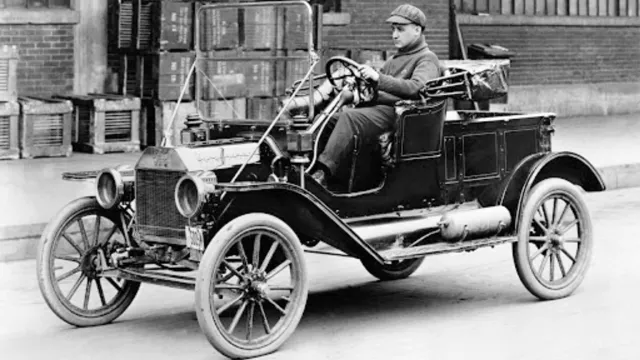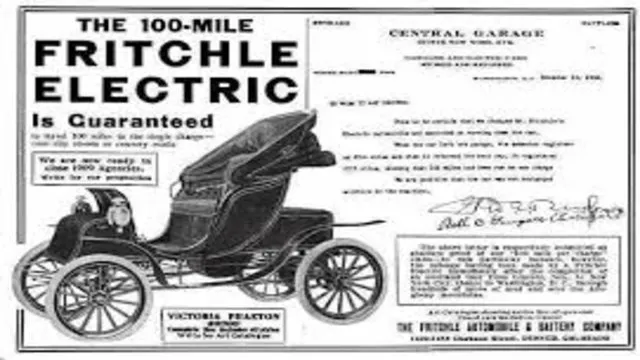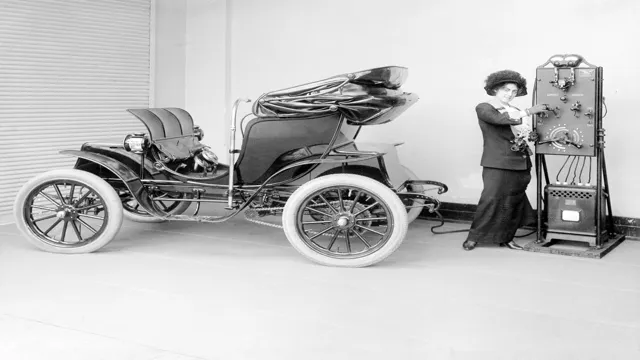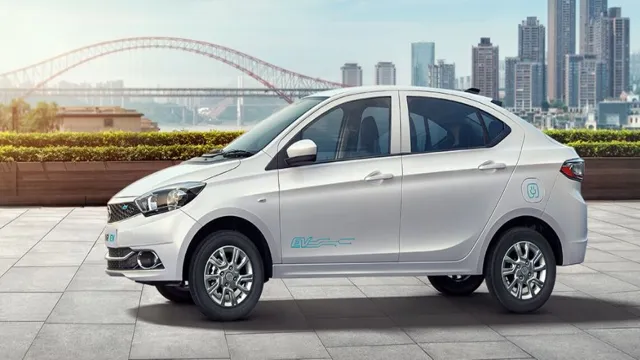Exploring the Fascinating Journey of BMW’s Electric Cars: A Historic Evolution
Are you ready to join the electric journey of BMW? As our world shifts toward sustainability, the automotive industry is also adapting to this change. BMW, one of the leading luxury car manufacturers, has taken a bold step toward a greener future by introducing electric cars. And the response has been overwhelming.
Join us as we explore the BMW electric journey and discover how they are revolutionizing the industry with their innovative and eco-friendly approach. Picture this, driving along the road without making a sound and with zero emissions. That’s what BMW’s electric cars offer.
But it’s not just the carbon footprint that they are reducing. These cars are packed with advanced features that enhance the overall driving experience. With sleek designs and cutting-edge technology, the BMW electric cars are setting the bar high for the industry.
But it’s not just about the cars. BMW has gone a step further and installed a network of charging stations, making it easier for drivers to go on longer journeys without the fear of running out of battery. This step is a significant milestone in the issue of range anxiety experienced by electric car owners.
Join us as we delve into the world of BMW’s electric journey and learn more about their mission to create a greener future. With their innovative approach to technology and sustainability, BMW is paving the way for a brighter tomorrow.
History of BMW Electric Cars
The BMW Group has been experimenting with electric cars for over 50 years. Back in the 1970s, the company built its first electric car prototype, the BMW 1602e, which ran on lead-acid batteries and had a range of around 19 miles. However, it wasn’t until the 2010s that BMW began seriously investing in electric cars.
In 2013, the BMW i3 made its debut as the company’s first all-electric vehicle. It’s a compact car with an estimated range of 153 miles and is made using eco-friendly materials like recycled plastics and natural fibers. BMW followed up the i3 with the i8, a plug-in hybrid sports car that combines a petrol engine with an electric motor.
The i8 can reach 0-62 mph in just 4 seconds and has a top speed of 155 mph, making it a powerful electric car that turns heads. BMW’s latest electric car, the iX3, is the company’s first electric SUV.
It boasts a range of up to 285 miles and can be charged to 80% in just 34 minutes using a 150 kW DC fast charger. As BMW continues to innovate and improve its electric cars, it’s clear that the future of mobility is electric.
Early attempts at electric vehicles
The history of BMW Electric Cars can be traced back to the early attempts at electric vehicles in the late 19th century. At the time, electric cars had a distinct advantage over gasoline-powered cars because of their quiet operation and lack of emissions. However, due to the limited range of batteries, they were not widely adopted.
BMW’s first attempt at an electric car came in 1972 with the experimental 1602 model. It featured a battery-powered motor that could reach a range of around 20 miles, but it was too expensive to produce. Nearly 30 years later, in 2009, BMW launched the MINI E, a limited-edition electric car available for lease in California, New York, and New Jersey.
It had a range of around 100 miles and paved the way for the company’s first mass-produced electric car, the BMW i3, which was released in 201 The i3 boasts an innovative design and advanced technology, making it a top contender in the electric car market today. As BMW continues to push the boundaries of electric car technology, it’s exciting to see how they will shape the future of sustainable transportation.
The launch of the i Series
The launch of the i Series marked a significant moment in the history of BMW electric cars. The i3 and i8 models were the company’s first electric vehicles, and they showcased some of the most innovative and cutting-edge technology. What made the i Series stand out was its emphasis on sustainability and eco-friendliness while still delivering on performance.
The i3 boasted a range of over 100 miles per charge, its frame was made from recyclable materials, and it even had an optional range-extender generator for added peace of mind. The i8, on the other hand, was a hybrid sports car that combined a three-cylinder engine with an electric motor to deliver over 350 horsepower. Both models were a significant departure from BMW’s traditional combustion engines, and they opened up a whole new world of possibilities for the company.
The i Series was a significant step towards BMW’s goal of sustainable mobility, and it was proof that electric cars could be both environmentally friendly and fun to drive.
BMW i3: A Game-changer for BMW Electric Cars
BMW has been pioneering electric car technology for over a decade now. While the BMW i3 was initially met with skepticism, it has proven to be a game-changer for the brand’s electric car offerings. The i3 was BMW’s first mass-produced zero-emissions vehicle and boasts a unique design and extensive use of lightweight materials such as carbon-fiber-reinforced polymer (CFRP).
Despite its compact size, the i3 offers impressive performance and driving range. BMW has continued to innovate and improve their electric cars, such as the iX3 SUV and the upcoming i4 sedan. The BMW i3 has undoubtedly played an essential role in the brand’s history of electric cars and has paved the way for a sustainable and electrifying future.
Design and performance features
When it comes to BMW electric cars, the BMW i3 is a true game-changer. This innovative car has been specifically designed to provide a sustainable and eco-friendly driving experience without sacrificing style or performance. The unique design of this car makes it a standout on the road, with its sleek, futuristic appearance and striking lines.
But, it’s not just about looks. The BMW i3 also boasts impressive performance features, including an electric motor that provides instant torque and a smooth, quiet ride. With its state-of-the-art engineering, the BMW i3 is able to deliver an impressive driving range, making it a practical option for both city and highway driving.
Overall, the BMW i3 sets a new standard for BMW electric cars, offering a winning combination of style, performance, and sustainability.
Sustainability and eco-friendliness
BMW i3 is the brand’s flagship electric car and a game-changer for sustainability and eco-friendliness. It is a sleek and innovative electric vehicle that combines a futuristic design with advanced technology to make it one of the most sustainable electric cars on the market. The i3 is made of eco-friendly materials like carbon fiber and recycled plastics to reduce its carbon footprint.
The car’s battery pack is also made of renewable materials like lithium-ion, which can be recycled at the end of their lifespan. The i3 has a range of about 153 miles on a single charge, making it suitable for short commutes and daily errands. Plus, it comes equipped with regenerative braking technology that recovers energy during deceleration and braking, further enhancing its efficiency.
Overall, the BMW i3 is a great example of how electric cars can be sustainable, eco-friendly, and stylish, all while helping to reduce our carbon footprint.
Market reception and reviews
Since its launch in 2013, the BMW i3 has been a game-changer for the brand’s electric cars. Its unique design and groundbreaking use of sustainable materials have received praise from critics and consumers alike. The i3’s electric powertrain delivers a smooth and effortless driving experience, with a surprising amount of power and speed.
The overall market reception has been positive, with the i3 being a popular choice for city dwellers who prioritize sustainability and style. Additionally, the i3 has received high marks for its advanced safety features and technological innovations, further cementing its reputation as a forward-thinking vehicle. Overall, the BMW i3 has proven to be a successful foray into the world of electric cars, showcasing the brand’s commitment to innovation and sustainability.
Future of BMW Electric Cars
BMW has a long history of electric cars, starting way back in 1972 with the 1602e, the first BMW electric vehicle (EV). Since then, the German automaker has continued to explore the potential of electric mobility. In 2011, BMW launched the i3, a compact EV with futuristic styling and impressive performance.
The i3 was followed by the i8, a plug-in hybrid sports car featuring BMW’s advanced technology. Today, BMW has an extensive lineup of EVs, including the iX3, i4, and iX, each with unique features and capabilities to meet the changing demands of consumers. Moving forward, BMW has ambitious plans for electric mobility, with a goal to have 25 electrified models on the market by 2023, half of which will be fully electric.
As they continue to invest in EV technology, BMW is committed to delivering premium electric cars that are both sustainable and enjoyable to drive.
Plans for upcoming electric models
BMW has been making significant strides in the field of electric cars, with plans to expand their range further in the coming years. The iX3, BMW’s first all-electric SUV, was released in 2020 and has been well-received by consumers, with impressive acceleration and a range of up to 286 miles on a single charge. However, BMW has much bigger plans for the future, with a total of 25 electric cars planned by 202
These include the i4, a sleek performance-oriented sedan with an estimated range of up to 366 miles, and the iX, a luxury SUV with a range of up to 300 miles. BMW is also investing in solid-state battery technology, which has the potential to provide even greater range and faster charging times. With these exciting developments, BMW is positioning itself as a leader in the electric car market, offering a range of models to suit a variety of needs and preferences.
Partnerships and collaborations
Partnerships and collaborations are key to the future of BMW electric cars. The German automaker has announced several high-profile partnerships in recent years to help them develop their electric vehicle technology. BMW has teamed up with companies such as Toyota, Intel, and Mobileye to advance their electric vehicle production and to integrate self-driving technology into their cars.
BMW is also collaborating with several other companies to establish a network of charging stations across the United States and Europe. These partnerships are crucial for BMW to remain competitive in the growing electric vehicle market and to continue pushing the boundaries of innovation. As a result of these collaborations, BMW has been able to release several electric car models, including the i3 and iX3, and plans to release many more in the coming years.
By partnering with other companies, BMW is ensuring that they remain at the forefront of the electric car revolution and continue to produce high-quality, innovative vehicles that meet the needs of their customers.
Conclusion: BMW’s Commitment to Electric Cars
Looking at the history of BMW electric cars, it’s clear that the company has been dedicated to pushing the boundaries of what’s possible in terms of sustainable, high-performance vehicles. From the early experimental models to today’s state-of-the-art i series, BMW has consistently proven that electric vehicles can be just as thrilling to drive as their gas-guzzling counterparts. While the future of mobility is uncertain, one thing is for sure – BMW will continue to lead the charge towards a more sustainable, electrified world.
So why not join the electric revolution and experience the thrill of silent, emissions-free driving for yourself? After all, as BMW likes to say – “the future is electric.”
FAQs
When did BMW start producing electric cars?
BMW started producing electric cars in 2013 with the release of the BMW i3.
How does the BMW i3 compare to other electric cars in terms of range?
The BMW i3 has a range of up to 153 miles on a single charge, which is comparable to other electric cars in its class.
What was BMW’s motivation for creating electric cars?
BMW’s motivation for creating electric cars was to reduce its carbon footprint and become a more sustainable company.
What advancements in technology have helped BMW improve its electric cars?
Advancements in battery technology have helped BMW improve the range and performance of its electric cars, while advancements in charging infrastructure have made it easier for drivers to find charging stations.






